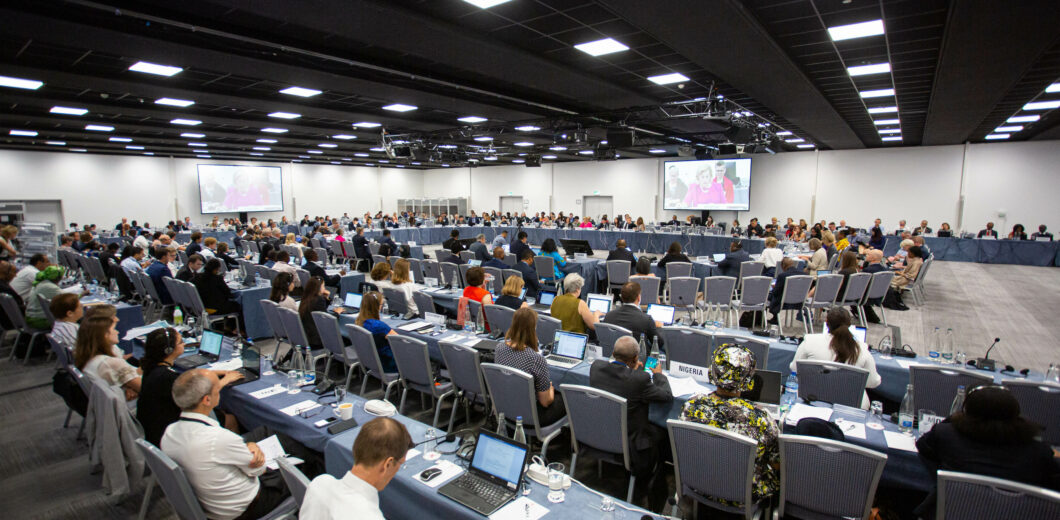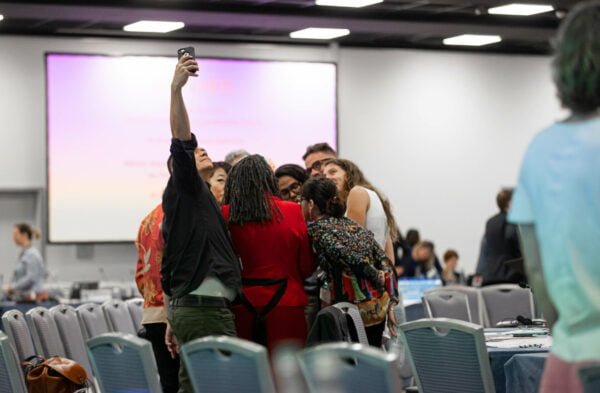Thank you Chair,
As we meet at this pivotal time at UNAIDS, we would like to thank the Interim Executive Director for her report, but also equally important is to thank the entire UNAIDS staff for “holding the line,” and to all PCB members – including the co-sponsors and my fellow PCB NGO colleagues that, through different working groups and committees, carried on the most important message we can send to the world in this moment: a message that the mission of UNAIDS is still absolutely relevant, to respond to an epidemic that, let’s be frank, at the current speed, will be far from over.
We acknowledge that none of the “collective results” presented here were easy to accomplish, but we see that we are moving forward with complex change processes at the organizational level.
A stronger UNAIDS is a matter of urgency, and complacency has no role in the future of the response. Therefore, we can’t give – or accept – excuses. It is time to be sharp in reaffirming that ending AIDS is not only one part of the global sustainable development agenda equation, but it is a crucial piece for promoting human rights for all, in all countries. We are glad to hear the words of recognition, from the acting executive director today, but also yesterday during a series of bilateral meetings we had, with different member state constituencies, about the crucial importance of our communities in all results we have accomplished so far. After all, If there is something that we have already proven to the world in this response, it is that the meaningful participation of people living with HIV and those affected by HIV and AIDS,is, and will forever be fundamental to the solutions and responses implemented.
So this PCB requires many agreements from us, but there is one of them that we can not give up: UNAIDS and member states must continue investing in the human-rights based and community-led responses. It is still more relevant nowadays, when the programmatic focus – both from donors and national governments – demand to address structural and social barriers; resulted from growing nationalism, political instability, and a deliberate rejection of science in many countries; and when there is a growing lack of sustainable funding for community-led organizations – including in Latin America where most countries rely on domestic funding for the AIDS response – and when, in the globe, countries that were role model in the AIDS response are now backtracking.
Yes, community-led organizations ARE social enablers for ensuring the AIDS response meets the needs of the people most affected by HIV, including protections for health, sexual rights, reproductive rights and other human rights.
But, what cannot be quantified cannot be counted, and what cannot be counted cannot be considered in policies or in budget allocation.
So, we are happy to share that last week, UNAIDS convened a space for networks of people living with HIV – including women and young people, gay men and other men who have sex with men, people who use drugs, sex workers, transgender people, people affected by TB, women, and treatment access activists – to lead the way we define our community-led responses and key population-led responses based on our own perspectives and diversity. It was followed by a three-day multistakeholder technical consultation to, for the first time in our history, define targets for social enablers, as part of the series of consultations to estimate the impact and resource needs for the 2021-2030 global response.
So, in times of failures in many countries to provide comprehensive, evidence-based HIV prevention, and growing concerns about HIV incidence among key populations, including young women and girls, it is essential to strengthen the capacity of the organizations and communities that, when responding to AIDS, are also fighting inequalities in difficult political contexts that are undermining the entire Agenda 2030. Invisibility, silence, stigma and discrimination have killed enough people.
It is time to not only to recognize but to really invest in those who deliver on the commitments to implement human-rights, people-based and community-led responses to AIDS. And only a stronger UNAIDS, with a strong leader in place, can do that.
I wish us all a harmonious, supportive, and fruitful PCB. Thank you.

